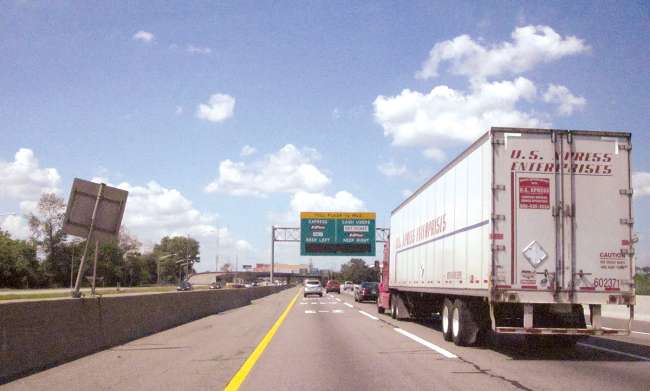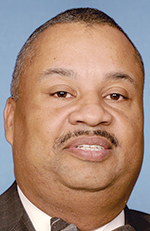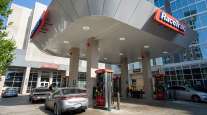Senior Reporter
New Jersey Congressman Endorses Federal Fuel Tax Increase

An increase in federal taxes on fuel would significantly help fund repairs for highway infrastructure along Interstate 95 in Newark, N.J., Rep. Donald Payne Jr. (D) said amid Congress’ consideration of tax reform legislation.
“Improving I-95 will boost the economy by shortening commutes, making cargo transport more efficient and improving highway safety,” Payne said Nov. 30, adding the I-95 stretch, or the Turnpike as it is known in the state, has been underfunded due to deficits in the Highway Trust Fund over the years.
The intricate network of ports, railways, highways and an international airport in the state’s largest city has not experienced significant upgrades in recent years, he said.

Payne
A report by the American Society of Civil Engineers found that one in 11 bridges in the Garden State are classified as structurally deficient, meaning they are deteriorating or severely damaged. The state is home to 6,657 bridges. Road congestion in cities such as Newark hinder freight mobility along key ports. The prominent Port Newark Container Terminal, located in that city, handles about 700,000 containers per year. The region also is home to the Port Elizabeth Terminal Corp.
In 2016, New Jersey residents acknowledged a need for repairing their infrastructure when they approved raising the state’s fuel taxes. The Garden State is among the two dozen states to recently raise fuel taxes in the absence of an increase at the federal level.
“Republicans ran on a promise to rebuild America’s infrastructure, but the GOP tax scam working its way through Congress does nothing to fix the gas tax and rebuild transportation infrastructure. Raising the federal gas tax to reflect today’s economy is necessary to keep Americans safe and our economy competitive,” the congressman said.
Speaking to Transport Topics, Payne added, “America’s economy depends on reliable and safe transportation. Rather than attempting to dismantle American health care, Republicans in Congress should focus their efforts on rebuilding our nation’s roads and bridges.”
Prior to advancing their tax bill, senators rejected a motion that would have utilized repatriated revenue for infrastructure. Funding advocates called the rejection a missed opportunity to boost the Highway Trust Fund during the tax bill’s consideration. The Transportation Construction Coalition, which includes the American Road and Transportation Builders Association, encouraged industry players as well as infrastructure investment advocates to urge that lawmakers approve a long-term fix to the trust fund.
Payne’s support of this traditional source of funding for transportation projects put him in the company of a very small group of congressional lawmakers. Democratic Sen. Tom Carper of Delaware and Oregon’s Peter DeFazio and Earl Blumenauer, also Democrats, advocate for raising federal fuel taxes.

Chao
Blumenauer said it was a “tragic mistake” for the Trump administration to hold off proceeding with an infrastructure funding measure until tax reform is finalized. “We have an opportunity to come together to raise the fuel tax, index the fuel tax, and I hope replace it with a long-term solution that is sustainable,” Blumenauer told trucking executives in Florida on Oct. 23.
Earlier indications by the White House and Transportation Secretary Elaine Chao was that they would unveil an infrastructure funding proposal after tax policy is overhauled. Recent reports, however, have signaled President Donald Trump might turn his focus to health care after tax reform.
For more than two decades, the federal highway account has relied on a 24.4-cents-per-gallon diesel tax and a 18.4-cents-per-gallon gas tax. Advances in vehicle fuel efficiency and a rejection by millennials of traditional driving habits are contributing to the decline in fuel revenue for the trust fund.
When Trump campaigned for president, he pledged to deliver to Congress during his first 100 days in office a $1 trillion, 10-year infrastructure funding proposal. Brief details of the plan that were unveiled in the president’s fiscal 2018 budget request would ask for $200 billion in federal spending to drum up private sector investments of $800 billion.




